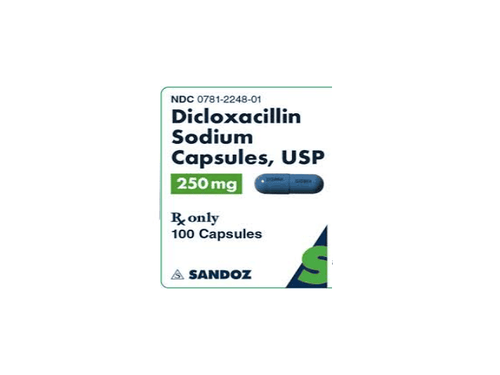This is an automatically translated article.
Abicof is an allergy medicine, used in cases of hypersensitivity. The drug has the ingredients Diphenhydramine HCl, Amonium Chloride, Sodium Citrate and Menthol with balanced content, syrup dosage form, packed in 1 box containing 1 bottle of 60ml, imported from India.
1. What is Abicof?
Abicof contains the main ingredients: Diphenhydramine 16mg, Amonium Chloride 135mg, Sodium Citrate 57mg and Menthol. Diphenhydramine belongs to the group of 1st generation antihistamines, ethanolamines, with sedative effects and strong anticholinergics. It acts through competitive inhibition of histamine H1 receptors. It is also used to treat irritating coughs and to relieve nausea, vomiting, or dizziness. Diphenhydramine is highly protein bound, widely distributed in body tissues and fluids, crosses the placenta, and is excreted in breast milk. Amonium Chloride is an electrolyte supplement and expectorant but effective in relieving cough. Menthol is an organic compound derived synthetically or produced from the oils of the mint plant. Menthol anesthetic is used to relieve irritation in the throat and nose. Menthol solution for inhalation helps to quickly relieve nasal congestion, runny nose due to nasal congestion. In Abicof solution, Menthol helps relieve symptoms of sore throat. The combination of drugs in Abicof increases the clinical effectiveness of Abicof.
2. What are the effects of Abicof?
Drug Abicof is used in allergic diseases, reducing symptoms of hypersensitivity, irritation caused by allergens.
Indications:
In case of allergies, bronchitis, colds or inhalation of irritating allergens. Diseases: Allergic rhinitis, urticaria, itchy skin. Insomnia: Thanks to the sedative effect of Diphenhydramine, it induces sleep. Abicof prophylactic in motion sickness, the patient suffers from dizziness. Contraindications:
Abicof should not be used in patients who are allergic to Diphenhydramine, Menthol, Sodium Citrate or other excipients.
3. Dosage and how to use Abicof
How to use: Abicof is used orally, measuring the drug with a teaspoon with ml divisions.
Dosage:
Adults: Take 25-50mg each time (2 to 4 teaspoons), every 4 to 6 hours. Children: Take the formula 1.25mg/kg, take the drug again every 4-6 hours. The total dose of the drug should not exceed 300mg per day. Specifically: Children weighing less than 10kg: Take 1/2-1 teaspoon each time. Children weighing from 10kg: Take 1 to 2 teaspoons each time.
4. Undesirable effects when using Abicof
Abicof drug has very few side effects when used in clinical practice. Unwanted effects may be encountered such as drowsiness, visual disturbances, dry mouth, nausea, abdominal pain... Rarely, patients have to stop using Abicof.
5. Notes when using Abicof
While taking Abicof, the patient should pay attention:
Inform your doctor about the drugs you are taking because there may be drug interactions when combined with Abicof. Some drugs interact with Abicof such as: Phenothiazines, MAOIs, Benzodiazepines, tricyclic antidepressants. Use caution when using the drug for pregnant women, children under 2 years old, lactating women. When using the drug, patients should not drink alcohol, Abicof contains 5% alcohol. People who are driving a vehicle or operating or operating machinery need to be careful when using the drug because the side effects can cause dizziness. Hopefully with the above information, readers have more knowledge of what Abicof is, how to use it and what to note when using it. Because it is a prescription drug, patients should not use it on their own, but need to consult a doctor before using it to ensure safety for health.













